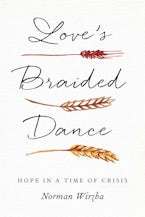
I’ve written here recently about the importance of reading beautiful books—for encouraging our souls and for improving our writing. Then earlier this week I argued at Front Porch Republic that “Home Libraries Will Save Civilization.” So, in this spirit of love of books, this post is a roundup of just a few beautiful reads I have recently enjoyed. And if you’d like more books coverage (you should, tbh!), Current’s Fall Books Week will run from this coming Monday through Friday! And my own new book will be out on Tuesday.
Ecclesiastes
Let’s start with the oldest and greatest. It is a wonderful joy and privilege this fall to co-teach with a dear friend a class at church on Ecclesiastes. We are working through Hannah Anderson’s study as we seek encouragement for “life under the sun.”
I was thinking recently how the wisdom books of the Old Testament are not ones where most Christians spend much time in their Bible reading and study. And yet, wisdom is something we all so desperately need to face the crises, big and small, of every day.
Boethius, The Consolation of Philosophy
This October 23rd will mark 1,500 years since the execution of Boethius, the author of The Consolation of Philosophy. Generally considered to be the last Classical writer (as opposed to Medieval), he is a bookend, marking the end of antiquity.
It is a strange and beautiful book. Boethius wrote it while in prison unjustly, awaiting execution for a crime (treason against the emperor) that he did not commit. It takes the shape of a dialogue between him and Philosophia, philosophy personified, who keeps him company in prison and encourages him in her no-nonsense-and-please-get-your-act-together way.
In reading through it recently, I was struck by the extent to which Philosophia, the product of Boethius’s brain, demonstrates her creator’s incredible mastery of the entirety of pagan and Christian literature and wisdom. No less than a consolation of philosophy, this work is a consolation one receives from spending his entire life in the company of good books.
Brad East on the Church
Theologian Brad East has not one but TWO books coming this month! I will comment here on the second of these—The Church: A Guide to the People of God. I have been pretty outspoken about my love for the local church. When we moved half-way across the country last year, it was our church that was the hardest to leave behind. And after the move, friends at church have been so instrumental for our settling into this new community.
That is how it should be. As East shows in this book, the delight we take in church life is a living out of a number of key theological truths—we are all “children of Abraham”; the church is not a building, but we are a body of believers—together; we are redeemed through Christ’s sacrifice; and the entire Bible is the story of the Church as the beautiful and beloved Bride of Christ.
Norman Wirzba, Love’s Braided Dance: Hope in a Time of Crisis
This is a beautiful book of the sort that stays with you a long while after you’re done reading. My review is coming later this fall, so I’ll stop here for now and just say: I’m still thinking about it, weeks after I finished reading.
Daniel Mason, North Woods
Imagine a house that is alive.
In Susanna Clarke’s novel Piranesi, a man lives in perfect harmony with a mysterious strange house. He does not remember how he got there or, really, anything of his previous life; all he knows is that the house is good. The house cares for him, providing him with nourishment, cover, and rest. In the process, the man displays his care, a true and genuine affection, for the house and the countless marble statues that inhabit its endless halls along with him.
We cannot help it sometimes. We grow to love the places where we live for a long time. They become familiar, with wooden stairs into which decades of our footsteps may wear grooves, or the affectionate familiarity of knowing which door sticks or slams too easily and during which weather. With a gentle caress we touch walls in passing, and with love for the house’s old floors do we sweep and mop, wanting to restore the bygone shine of surfaces.
These are all thoughts that passed through my mind while reading Daniel Mason’s gorgeous novel North Woods. Here too, a house is alive, and we get its history from the time that a young Puritan couple built it, to the twenty-first century. It’s the story of a house, and how different people cared for it (or not), and how it absorbed their memories and their very essence in a way that can best be described as transcendent.





Oh how I love bookish serendipity! I recently finished Ecclesiastes. Just yesterday I happened across a reference to Boethius and thought, “Hmmm…really should check that out.” And then I see you end up reviewing North Woods!(a favorite recent read) ✨✨